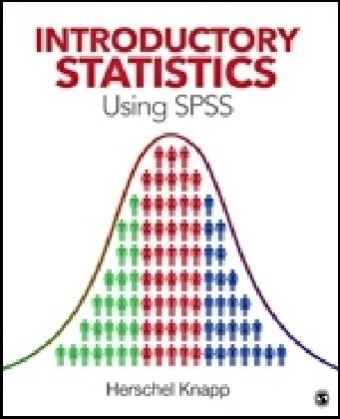
Introductory Statistics Using SPSS
SAGE Publications Inc (Verlag)
978-1-4522-7769-1 (ISBN)
- Titel erscheint in neuer Auflage
- Artikel merken
The four sections cover: I – Statistical Principles: Research Principles, Sampling, Working in SPSS; II – Statistical Processes – Descriptive Statistics (continuous and categorical), T Test, ANOVA, Paired T Test, Correlation and Regression, Chi-Square; III – Data Handling: Supplemental SPSS Operations (e.g., generating random numbers, multilevel sorting, case selection, recoding, importing data); IV – Fully developed solutions to odd numbered exercises. Emphasis is placed on fully comprehending statistical results and translating findings into brief textual abstracts.
Digital ancillaries include SPSS datasets for examples and exercises, and a series of tutorial videos detailing (1) an overview of each statistical process, (2) step-by-step SPSS processing guidance for running and interpreting pretest checklists (statistical assumptions criteria), (3) instructions for configuring data and running statistical tests, (4) specific guidance on interpreting tables and graphics in the results reports. Instructors receive supplemental ancillaries including syllabi, all datasets, and PowerPoint presentation files for each chapter.
This comprehensive learning package is ideal for in-class, remote learning, self-paced independent learning, or professionals involved in data analysis.
Herschel Knapp, PhD, MSSW, has more than 30 years of experience as a health care professional in a variety of domains. In addition to his clinical work as a psychotherapist, primarily in hospital settings, he has provided project management for innovative interventions designed to improve the quality of patient care via multisite, health science implementations. He teaches master’s and doctoral courses at Yeshiva University; he has also taught at the University of California, Los Angeles, University of Southern California, California State University, Los Angeles, and California State, San Bernardino. Dr. Knapp has served as the lead statistician on a longitudinal cancer research project and managed the program evaluation metrics for a multisite, nonprofit children’s center. His clinical work includes emergency/trauma therapy in hospital settings. Dr. Knapp has developed and implemented innovative telehealth systems, using videoconferencing technology to facilitate optimal health care service delivery to remote patients and to coordinate specialty consultations among health care providers, including interventions to diagnose and treat people with HIV and hepatitis, with special outreach to the homeless. He created and implemented a nurse research mentorship program, providing research and analytic education, enabling nurses to design, implement, analyze, and publish the results of their quality improvement projects. Dr. Knapp has published numerous articles in peer-reviewed health science journals and serves as a peer-reviewer for more than 20 science journals. He is also the author of other textbooks, including Intermediate Statistics Using SPSS (2018), Introductory Statistics Using SPSS (2nd ed., 2017), Practical Statistics for Nursing Using SPSS (2017), Therapeutic Communication: Developing Professional Skills (2nd ed., 2014), and Introduction to Social Work Practice: A Practical Workbook (2010).
PART I. STATISTICAL PRINCIPLES
1. Research Principles
2. Sampling
3. Working in SPSS
PART II. STATISTICAL PROCESSES
4. Descriptive Statistics
5. T Test
6. ANOVA
7. Paired T Test
8. Correlation & Regression
9. Chi-Square
PART III. DATA HANDLING
10. Supplemental SPSS Operations
PART IV. SOLUTIONS TO ODD EXERCISES
| Verlagsort | Thousand Oaks |
|---|---|
| Sprache | englisch |
| Maße | 187 x 231 mm |
| Gewicht | 720 g |
| Themenwelt | Mathematik / Informatik ► Mathematik ► Computerprogramme / Computeralgebra |
| Mathematik / Informatik ► Mathematik ► Statistik | |
| Sozialwissenschaften ► Soziologie | |
| ISBN-10 | 1-4522-7769-9 / 1452277699 |
| ISBN-13 | 978-1-4522-7769-1 / 9781452277691 |
| Zustand | Neuware |
| Haben Sie eine Frage zum Produkt? |
aus dem Bereich



